While translating Baha’i writings into his native Maori language, Tom Roa encountered a conundrum—this deeply spiritual indigenous language has a word for spirit but not for soul.
“In the Bible this word, wairua, means soul and spirit. But in Baha’u’llah’s The Hidden Words they are two distinct ideas. So, we had to make a distinction,” explains Dr. Roa, professor of Maori and Indigenous Studies at the University of Waikato, referring to efforts to translate one of Baha’u’llah’s most well-known works.
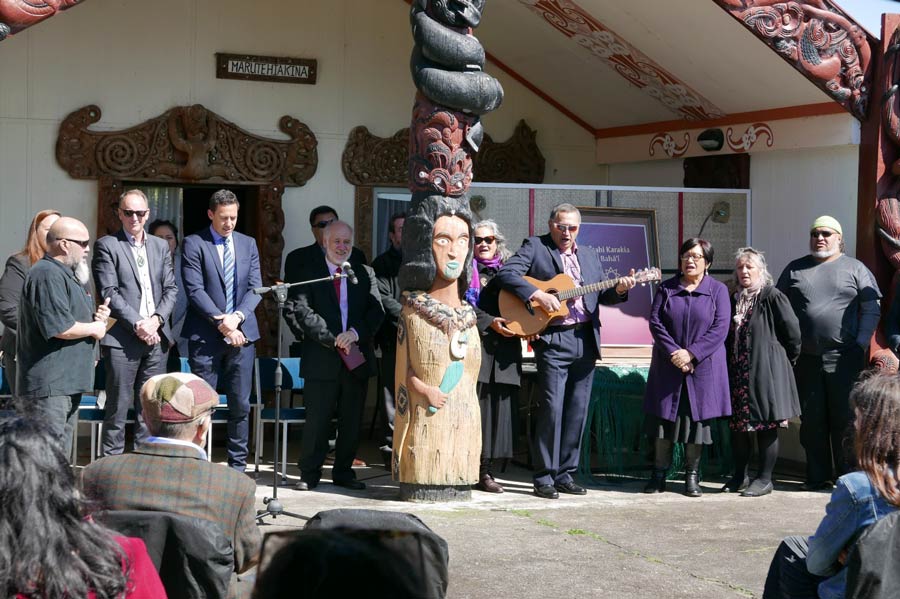
The publication of a Baha’i prayer book in the Maori language was commemorated at a local Maori community meeting grounds near Hamilton, New Zealand.
The resulting word for soul, wairua-ora, is a combination of the word for “spirit” and a word meaning “living” — living spirit.
This was one of the many complexities of translating Baha’i writings to the language of the indigenous people of New Zealand. A 14-year effort, during which two other major translations of Baha’i works were published in Maori, culminated in the release this month of the first substantial Baha’i prayer book in that language.
Providing access to prayers in Maori was a key motivation for the National Spiritual Assembly of the Baha’is of New Zealand when it undertook the process in 2004. A small team of Baha’is worked with Dr. Roa, who has translated other spiritual texts into the Maori language, including the Bible and the Quran.
The translation work began first with The Hidden Words, Baha’u’llah’s preeminent ethical work, and Baha’u’llah and the New Era, an introduction to the Baha’i Faith written by J. E. Esslemont.
“The prayer book was the jewel,” says James Lau, a member of the translation team. “All our efforts were crowned with the jewel.” Mr. Lau explains that the translation process was not simply a technical task. The team became very unified over the years, exploring profound spiritual themes through their efforts to understand and translate spiritual concepts into the Maori language.
“The Baha’is were committed to the idea that there should be a Maori prayer book, and I am happy to have been part of that process,” Dr. Roa says. “The Maori-speaking Baha’is are thankful that they can talk to God using their language.”
As with many of the world’s indigenous cultures, the Maori culture has many deeply spiritual concepts and ideals.
“In the ancient prayers of the Maori, there is a phrase Matangi i Oeia,” explains Huti Watson, who is Maori and a member of New Zealand’s National Spiritual Assembly. “It describes a place in the heavens and means ‘the perfumed gardens.’ This is a concept that Baha’u’llah also talks about. Having prayers in Maori links us more to the reality of these words.”
Were ye, O high priests, to discover the perfume of the rose garden of understanding, ye would seek none other but Him, and would recognize, in His new vesture, the All-Wise and Peerless One, and would turn your eyes from the world and all who seek it, and would arise to help Him.
Whatsoever hath been announced in the Books hath been revealed and made clear. From every direction the signs have been manifested. The Omnipotent One is calling, in this Day, and announcing the appearance of the Supreme Heaven. – Baha’u’llah, The Proclamation of Baha’u’llah, pp. 105-106.
Mrs. Watson said she recently noticed a Baha’i prayer translated into Maori being circulated on Facebook. The prayer, written by Abdu’l-Baha about children, was being posted by mothers.
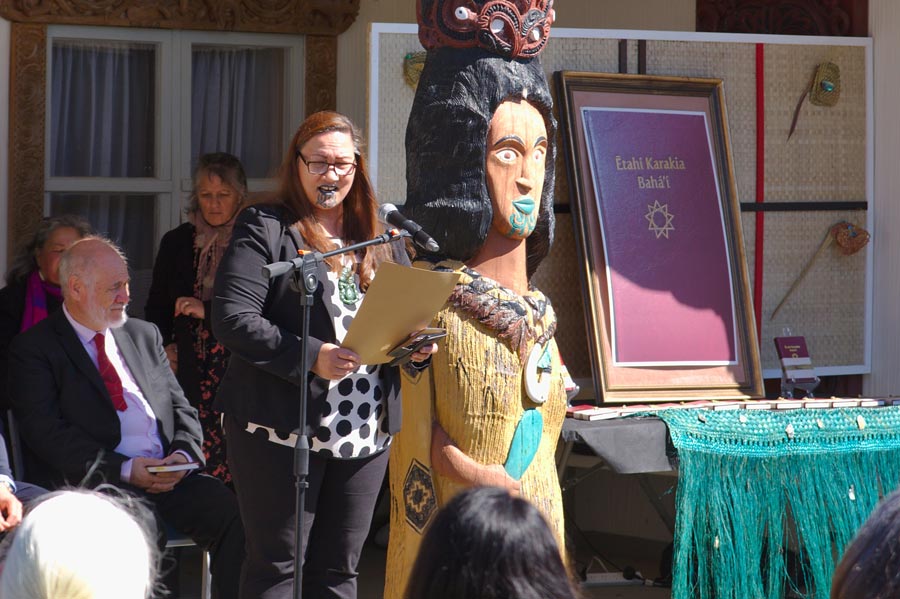
Baha’i prayers translated into the Maori language were read at the event commemorating the release of the newly published Baha’i prayer book. Here, Huti Watson reads a prayer.
“People would say, ‘Wow this is beautiful. This is exactly what I want,’” Mrs. Watson notes.
This endeavor comes amid broader efforts to revive the Maori language. Dr. Roa, who has been at the forefront of these efforts, says that Maori speakers are a declining share of New Zealand’s population. Maori people make up only 15 percent of New Zealand’s population, and only a fifth of them can have a conversation in Maori, Dr. Roa notes.
However, there is a growing interest in learning the language: “In the first half of the 20th century, many of our elders spoke of being punished physically for speaking Maori in school. Now we have schools crying out for teachers of Maori.”


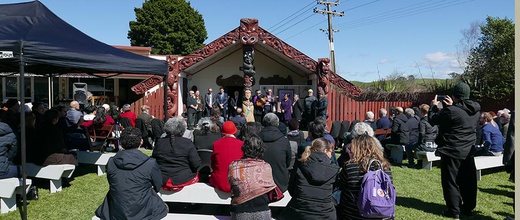


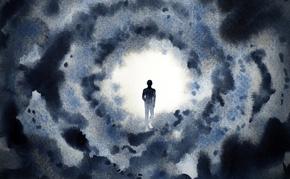


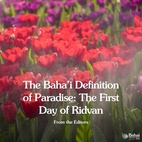








Comments
Sign in or create an account
Continue with Facebookor